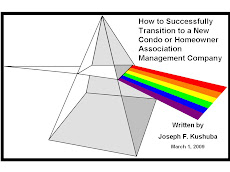
How Board of Director (BoD) members interact says a lot about the state of a condo or homeowner’s association
Leadership is the ability to make things happen by encouraging and channeling the contributions of others, taking a stand on and addressing important issues, and acting as a catalyst for change and continuous improvement.
Yesterday’s leaders in for-profit businesses could demand performance. Today they are faced with a more educated and democratically oriented workforce. In a volunteer organization such as a condo or homeowner’s association BoD, the problems and opportunities can even more complex and challenging. As a result, today’s BoD must encourage and apply the contributions of all of its members, both individually and as a group.
Shown below are some ways that effective and ineffective BoD teams act.
Ineffective teams: People shield those in power from unpleasant facts, fearful of penalties and criticism for shining light on the rough realities
Effective teams: People bring forth grim facts—"Come here and look -- this is ugly"—to be discussed; leaders never criticize those who bring forth harsh realities
Ineffective teams: People assert strong opinions without providing data, evidence, or a solid argument
Effective teams: People bring data, evidence, logic, and solid arguments to the discussion
Ineffective teams: The BoD president has a very low questions-to-statements ratio, avoiding critical input and/or allowing sloppy reasoning and unsupported opinions
Effective teams: The BoD president employs a Socratic style, using a high questions-to-statements ratio, challenging people, and pushing for penetrating insights
Ineffective teams: Team members acquiesce to a decision but don't unify to make the decision successful—or worse, undermine it after the fact
Effective teams: Team members unify behind a decision once made, and then work to make the decision succeed, even if they vigorously disagreed with it
Ineffective teams: Team members seek as much credit as possible for themselves, yet do not enjoy the confidence and admiration of their peers
Effective teams: Each team member credits other people for success, yet enjoys the confidence and admiration of his or her peers
Ineffective teams: Team members argue to look smart or to further their own interests rather than argue to find the best answers to support the overall cause
Effective teams: Team members argue and debate, not to improve their personal position but to find the best answers to support the overall cause
Ineffective teams: The team conducts "autopsies with blame," seeking culprits rather than wisdom
Effective teams: The team conducts "autopsies without blame," mining wisdom from painful experiences
Ineffective teams: Team members often fail to deliver exceptional results and blame other people or outside factors for setbacks, mistakes, and failures
Effective teams: Each team member delivers exceptional results, yet in the event of a setback each accepts full responsibility and learns from mistakes








